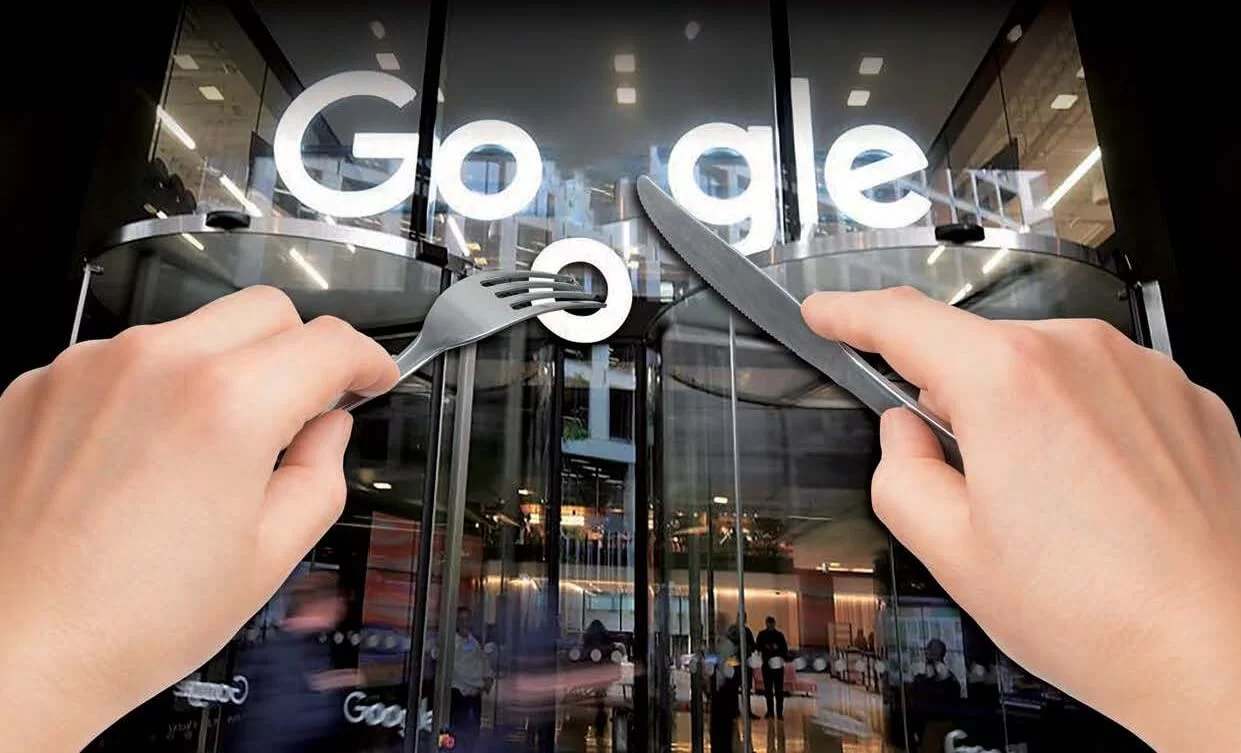After Monopoly Adjudication, Google to Face with a Rare Spin-Off
Because Google was recently found by the court to have monopolized the search market, the US Department of Justice is considering breaking up Google, and the Android system and Chrome browser may be forcibly divested.
On August 13, people familiar with the matter revealed that the U.S. Department of Justice is planning to promote the split of Google, a subsidiary of Alphabet, specifically involving the split of Google and its Android system.
It is reported that if implemented, this move will be the first time that the U.S. federal government has made such a proposal in more than 20 years. Previously, the U.S. Department of Justice won the antitrust case against Microsoft, but the company terminated the split progress after paying $1.8 billion in settlement fees in 2001, was prohibited from participating in exclusive transactions and opening some source code.
In addition, this move will also be the largest U.S. company split since the split of AT&T in 1984.

DOJ Wins the Case
On August 5, Amit Mehta, a federal judge in the U.S. District Court for the District of Columbia, publicly ruled that Google's dominant position in the search market violated U.S. antitrust laws, which also means that the U.S. Department of Justice has finally won the antitrust battle in the technology industry that has lasted for more than 20 years.
In 2020, the U.S. Department of Justice and the attorneys general of 52 states and jurisdictions jointly sued Google, accusing Google of paying billions of dollars to partners such as Apple, Samsung and AT&T and signing exclusive distribution agreements to ensure that its search engine becomes the default option for most smartphones.
Today, the ruling finally determined that Google violated Section 2 of the Sherman Act and occupied a monopoly in the two major markets of general search services and general text advertising.
Subsequently, Google issued a statement on the social platform X that it would appeal the ruling, and the legal process may take about two years.
Spin-Off Plan
According to people familiar with the matter, if the Department of Justice orders Google to sell part of its business, the Android operating system and Chrome browser will be the most likely business units to be divested. It is understood that the number of users of these two products is huge, and the Android operating system is currently installed on more than 2.5 billion devices.
The ruling pointed out that Google requires multiple device manufacturers to sign agreements to pre-install applications such as Gmail and Google Play Store into their products, and to install Google search tools and Chrome browsers on devices in a way that cannot be deleted, thereby effectively preventing competition from other search engines.
Not only that, Google also has a monopoly on the ads that appear at the top of the search results page, so officials are also considering whether to force Google to sell its platform for selling text ads, AdWords, which accounts for about two-thirds of Google's total revenue. If AdWords is not sold, "interoperability" requirements may be imposed to seamlessly connect with other search engines.
Mild Measures
In addition to the forced split, the US Department of Justice has some relatively mild penalties, such as requiring Google to share more data with competitors (DuckDuckGo and Microsoft Bing, etc.) to help them improve search results and compete more effectively with Google.
In addition, relevant measures will be taken to prevent Google from gaining unfair advantages in the AI product market, such as allowing other websites to appear in search results, and in exchange, the content of these websites will be used to train Google's AI products.
In any case, the US Department of Justice is likely to ask for a ban on Google from signing exclusive contracts with other companies, which is the core of the case.
Second Round of the Trial
According to reports, the US Department of Justice will start the second round of antitrust trials in early September and decide how to deal with Google's monopoly position and remedies. At that time, the Department of Justice will propose a specific plan to restore fair competition in the market.
Previously, industry analysts pointed out that although in theory the Department of Justice could order the splitting of Google, it was unlikely. Gene Burrus, former assistant general counsel of Microsoft, believes that the final punishment will most likely take "structural remedies" to impose new restrictions on the way Google conducts its business.
In summary, no one knows what decision Judge Amit Mehta will make in the end, but the Department of Justice has not yet reached a consensus on the possibility of stripping the Android system.
·Original
Disclaimer: The views in this article are from the original Creator and do not represent the views or position of Hawk Insight. The content of the article is for reference, communication and learning only, and does not constitute investment advice. If it involves copyright issues, please contact us for deletion.